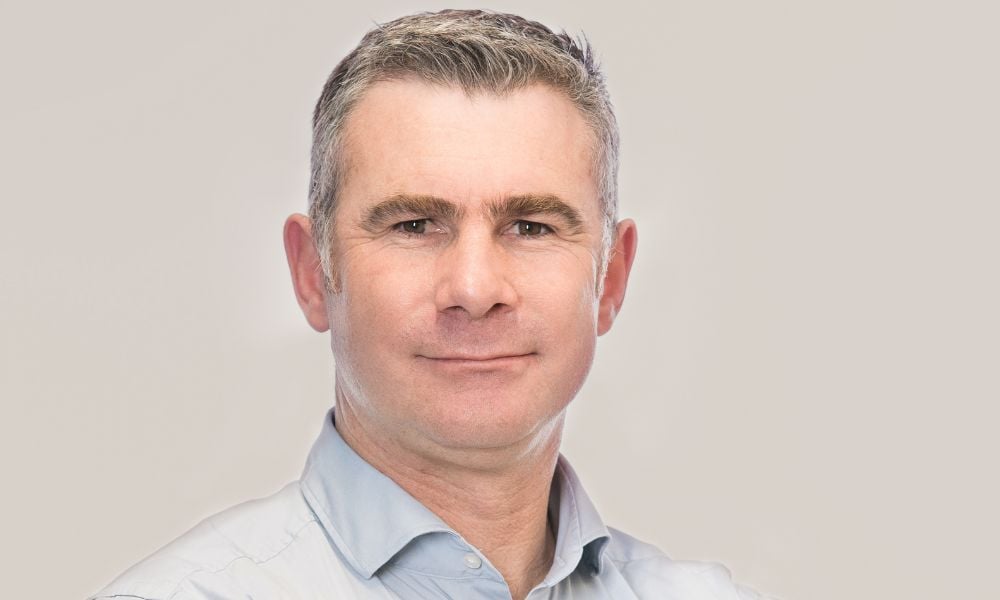
Mark Lewis balances talent as Connetics readies for growth

When you get to the summit, you might find Mark Lewis there. The head of people and culture at electricity distribution company Connetics came into his job via his passion for mountaineering, ski touring and white-water rafting.
“I’m an accidental HR professional,” Lewis tells HRD. “I’m an educator, mainly in the adventure and outdoor sector. That’s what really motivates me, helping people achieve more than they could have imagined. That’s where I came from.”
Lewis joined Connetics in May 2022, which has 450 people on the payroll and is owned by regional distribution network Orion.
Electricity supply relies on generation, but that’s not much good if there is a snag in distribution.
“You don’t think about electricity until it disappears, and then we feel like we’re going to keel over in three minutes,” Lewis says. “You mean I can’t turn on my computer? My lights don’t work? We’re just so dependent on it.”
These days, consumers are being asked to come to grips with understanding where their energy comes from and how they use it. As more sources of intermittent renewable generation are connected to the grid, the job of balancing supply with demand will become far more complex.
“We’ve now got a system where there’s power coming in from all kinds of places,” Lewis says. “We haven’t seen much change in the past 30 years, but we’re going to see massive change over the next 10 years. We’ve got lots to do to reconfigure the grid and meet the change in demand while keeping it affordable.”
Soon after starting at Connetcis more than two-and-a-half years ago, he saw a bump on the road ahead. Staff turnover was running at about 22%, in an organisation with a long pipeline for developing talent.
“I got a bit nervous,” he says. “If we’re losing talent that fast out the top, how can we bring it in the bottom?”
After all, senior people are needed to develop junior people. Around that time, skilled workers were being tempted across the Tasman as Australia struggled with its own energy redesign. “The market was really tight,” Lewis says.
To get the workforce it needed, the company had to hire at both ends – to stop leakage at the top and speed up recruitment at entry level. The firm added 135 employees. Over the same period, turnover fell from 22% to 16% and time to hire fell from about 50 days to around 29 days.
It was a great result. Sadly, it was followed by an economic downturn that saw expenditure in the regulated electricity market take a nosedive. Connetics is now looking fully staffed, Lewis says. The natural attrition of turnover, he says, has become a carefully calibrated mechanism that takes in succession planning, retention strategies, performance conversations and leave management.
“It’s about supporting the ones whose time has come to move on, while retaining the people we’re going to need for when the work comes back on so that we can ramp up really quickly,” he says. “I don’t want to know how lean we are when times are tight. I want to know how lean we are when times are good, because it’s easy for inefficiencies to creep into the system.”
Lewis spent the first 20 years of his career outdoors, he says, including 10 years with the New Zealand Army pushing soldiers and officers through adventure training.
“When I arrived at the army, they were like, ‘Well, we’re not sure if adventure training is valuable enough, and we’re looking at our costs.’ I had just got my dream job and they said they might have to disband the unit … unless I could demonstrate there was more value in it.”
Lewis sat down with the chief instructor and sketched out a revised strategy. Instead of individual and leadership development and resilience being part of adventure training, it would become the focus of the training.
“We flipped it on its head,” he says. “We were lucky, because [the New Zealand Defence Force] at the time had some concerns about leadership development. They told us, ‘Your training plugs into this area where we had a gap.’”
Five years after starting, Lewis was setting up the army’s leadership centre.
“My background as a teacher really helped with designing the indoor programs to complement the outdoor programs,” he says.
The program evolved into a new way of delivering leadership training to all the defence forces, and the resilience component was refined following a research trip to check out the US Army’s Master Resilience Training program in Pennsylvania.
Coaching tomorrow’s leaders planted the thought with Lewis that perhaps he would like to lead something himself. Recognising his most transferable skills were in HR, in particular organisational development and learning and development, he moved to a health provider in Christchurch to work on talent leadership and capability development.
“But in terms of cementing myself, I didn’t have the generalist skills,” he says. “So, I got a generalist HR role to demonstrate that I could do payroll and all the other stuff.”
Voted as one of the best HR executives in the HRD Hot List 2024, Lewis can look back over his career so far and admit to himself that his strategy of following his intuition has worked.
“I didn’t go into HR because I want to be an HR professional. I wanted to lead organisational change and deliver strategy. HR was the nicest transition for me. I still think of myself as Mark the educator, the person who wants to help people realise their potential.”